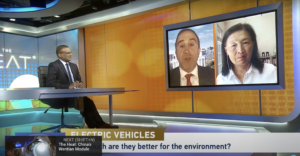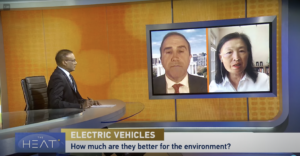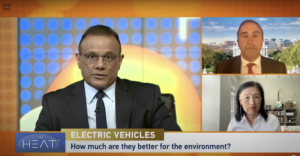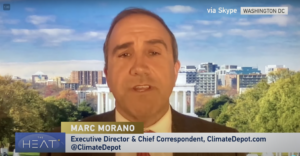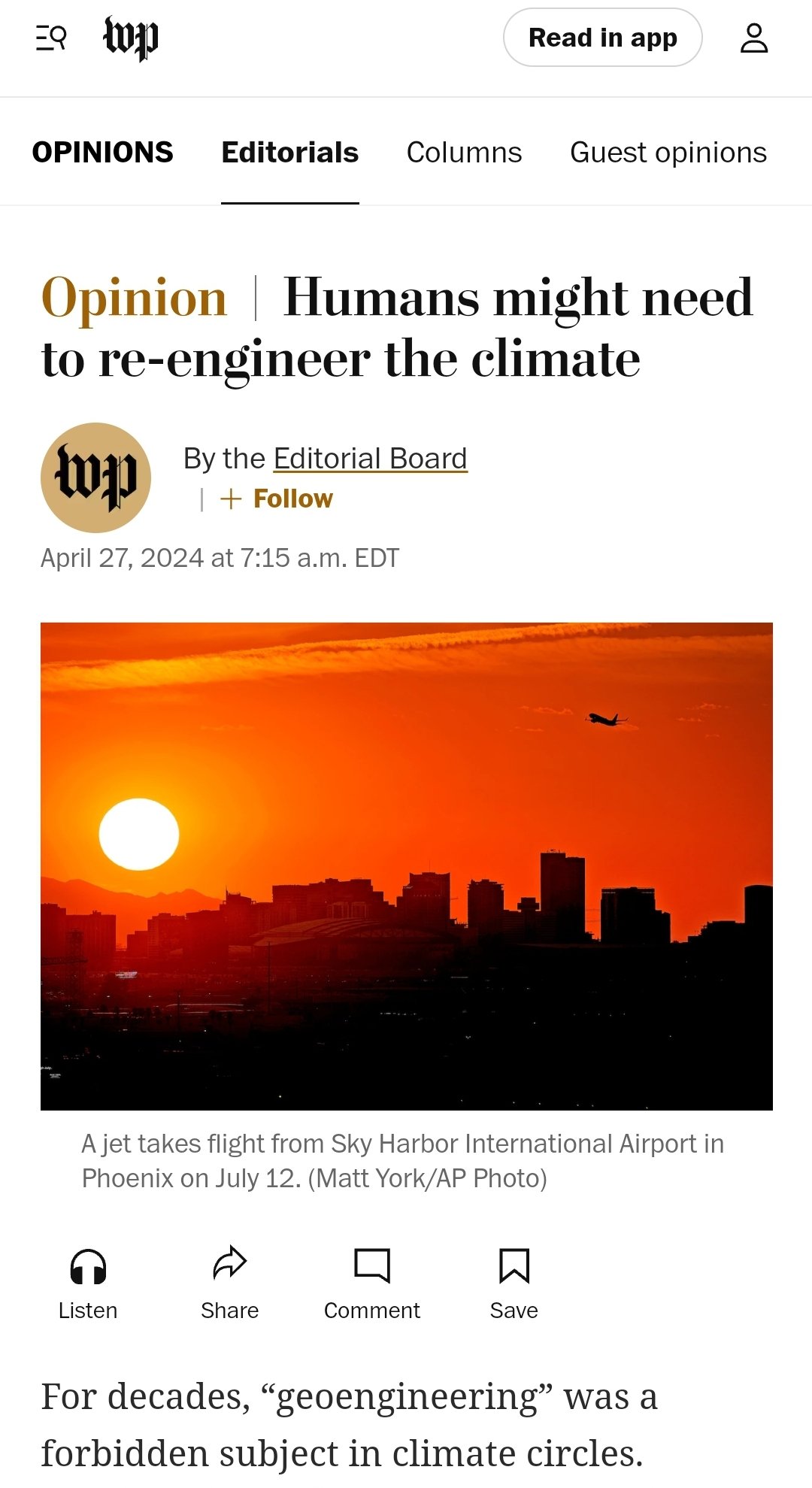https://america.cgtn.com/2022/08/12/the-heat-electric-vehicles-around-the-world
They have become a common sight in many cities around the United States.
Electric vehicles – increasingly filling the streets and, in some cases, leaving the competition in the dust.
On today’s show we will discuss the market, where is it going and how competition could drive prices down.
We will also talk about the environmental issue: are electric vehicles green?
To discuss:
- Tu Le is Managing Director of Sino Auto Insights.
- Tyson Jominy is Vice President of Data Analytics at J.D. Power.
- Marc Morano is Executive director and chief correspondent of Climate Depot.com.
- Changhua Wu is CEO of the Beijing Future Innovation Center.https://youtu.be/hXg_rpzVyGQ
#
Rough Transcript:
CGTN Host: Marc, let me start with you. There was a survey done recently by AAA which showed that one in four Americans say that they want to drive an electric car they want to get behind the wheel of an electric car and leave their gas-driven car behind. Are we seeing the final days of petrol and diesel-driven vehicle in the United States?
Marc Morano: No I don’t think so. I think that the big issue here isn’t that a new car is being offered and consumers have a choice and they’re going to go over and vote to go electric. Unfortunately, that’s not happening with government mandates and even what the World Bank is up to. Nicholas Stern just announced that conventional engine sales of gas-based engines should stop. So when you have the bankers behind the scenes essentially saying this is going to stop and you have all the governments mandating higher and higher fuel economy — and I think as California has done and a couple of other places and around the world — the end of the sale and even the production of gas-powered cars — this is a forced mandated controlled planned move against the wishes of average consumers. So when you cite a survey like that, yeah it sounds interesting people hear about a Tesla, they might sit in one, they have all the latest gadgets, they’re very fast. I for one wouldn’t drive an electric car because I like stick shift and all my cars have been stick shift. Until they invent a way for me to have at least a simulated authentic stick shift I wouldn’t get an EV.
But essentially, I‘m arguing against this whole idea of the mandated electric cars. I think it should be a consumer choice. You cannot force the unnatural end the gas-powered cars and unfortunately due to this alleged climate crisis that’s exactly where every government’s policies are headed. We need to call a timeout and say stop this madness.
CGTN Host: Well there is the environmental issue Marc, isn’t there?
Marc Morano: There is and when you consider first of all national security here in the United States the more we go with solar, wind and specifically electric cars, the more reliance we’ll have on China, the more reliance we’re going to have on rare earth mining which we in America are not allowed to do. I interviewed a lanthanide mine that got shut in the Mojave desert in California in the United States. At the same time, China was able to open up their mines and they don’t have as strict environmental standards. China doesn’t have the green politics, they’re building a coal plant a week on by some estimates. So they’re going full steam ahead. The problem comes when we’re now giving up gas-powered cars with the illusion that the electric car is somehow going to be more environmentally friendly. Electric cars dig the earth. And that’s the bottom line and also you have the battery, you have recycling, you have also the cost-benefit issues. Is it actually going to — if you buy an expensive electric car — will you save money in the long run versus a cheaper gas-powered car?
…
Morano: I would argue that’s not coming from consumer demand necessarily, that’s coming from reading the tea leaves of government regulators — reading the tea leaves of the banking industry. So what’s happening here is Americans aren’t given a choice. And with all due respect, we do not look at it as a zero-sum game with China. We look at it as dangerous to have reliance on China. There’s concern over China is buying up U.S. farmland. There’s concern about our reliance on China for all these critical rare earth metals and mining.
The other thing is the Biden administration’s strategic mistake of making a national electrification car charging grid. Now what’s scary about that — and we’re dealing with 2022 now, this is not 2019 — we lived through COVID lockdowns so at least half or 40 percent of the U.S. population is suspicious of an electric car regulations and technology that’s going to be centrally planned first of all decades in advance number one. And number two, the charging stations run by the federal government that can be shut down if a government decides we need another viral lockdown like COVID – they can turn off a charging grid. This is not the America people are willing to accept. And believe me, that is a big issue. You may chuckle, you may laugh when someone like me says that, but after we’ve lived through lockdowns and this kind of government control we don’t want to turn to a technology like electric cars that are going to record every aspect of our life, lane avoidance, driverless cars. I think there’s going to be a healthy dose of significant skepticism and that’s going to trickle into the politics. My hope is these mandates for electric cars start getting rolled back beginning with the midterm elections. It’s going to be a repudiation of Joe Biden’s electric car politics.
#
Related Links:
Biden Energy Secretary Jennifer Granholm: The savings "of owning, maintaining, and not having to fill up [electric vehicles] are just enormous"
Except the average cost of an electric vehicle is $67,000. pic.twitter.com/oaFKlLF8TE
— RNC Research (@RNCResearch) August 21, 2022
At World Bank Climate Talk, Nicholas Stern Floats End of Conventional Vehicles Sales: Urges ‘clarity on timescales for stopping the sale of internal combustion engine vehicles’ – Nicholas Stern, former chief economist for the World Bank from 2000 through 2003: “The right kind of policies have to be put in place, including the abolition of fossil fuel subsidies, the advancement of carbon pricing, but clarity on timescales for decentralization of the grid, clarity on timescales for stopping the sale of internal combustion engine vehicles, and so on—making sure the sense of direction is clear in those ways.”
California Is Impoverishing Its Low-Income Residents With Electricity Prices
Electric cars are already causing some grid failures in Australia
Green Killers: Congo’s Miners Dying to Feed World’s Hunger for Electric Cars
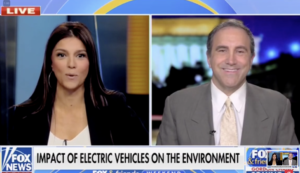
Morano: “When you go and plug in your electric car and you pat yourself on the back for being nice and green, you’re powering that battery, you’re recharging that battery with fossil fuels. That’s the first thing, and that doesn’t even bring into how they put the batteries together.
All the rare earth mining is giving China the world monopoly on this. China is buying up Africa. They’re going in places like Congo, where 70% of the world’s cobalt. They are using underage labor. They’re using Uyghur slaves in China. They are the ones we have to turn to and they are making us more reliant on them to dig up the Earth without our higher environmental standards. We’re outsourcing our pollution to get electric cars that run and recharge on fossil fuels. It makes no environmental sense in that regard.”
Listen: Morano talks electric cars & China on The Joe Piscopo Show
Nets Omit Hunter Biden’s Connection to Chinese-Owned Cobalt Mine, Electric Car Push
According to a report by The New York Times which found a firm connected to Hunter Biden secured such a mine for the Chinese, at the same time his father, President Joe Biden, was now forcing the United States to switch over to electric cars. … “An investment firm where Hunter Biden, the president’s son, was a founding board member helped facilitate a Chinese company’s purchase from an American company of one of the world’s richest cobalt mines, located in the Democratic Republic of Congo,” reported Michael Forsythe, Eric Lipton and Dionne Searcey of The Times.
Environmentalists should lead the charge against electric vehicles – ‘Natural resource-intensive’ – The U.S. Environmental Protection Agency (EPA) was wrong when it developed an “equivalent” fuel mileage calculation that claimed PEVs were three times as efficient as gasoline engines. The misinformation campaign simply reported the efficiency of driving a vehicle with a full tank of gasoline vs. a fully charged battery. It ignored the energy losses incurred when generating electricity and charging the battery.
Human rights activists should be repelled by the horrific injustices that come with battery production. The necessary lithium, cobalt and nickel are energy-intensive to mine, and the countries where these metals are harvested do not observe the same environmental restrictions as the United States. Cobalt mining in the Republic of the Congo, the country with the largest proven reserves of cobalt, has been linked to child labor deaths.
Mean and Unclean: Electric Cars Powered by Child Labor in Africa – Cobalt is an expensive metal used in electric car batteries, costing about $35,000 per ton.
59% of cobalt comes from the Democratic Republic of the Congo. Cobalt mining in the Congo is often done by children — as many as 40,000 — working in brutal and unsafe conditions. A euphemism for these children is ‘informal’ workers.
#
Also see: Electric cars ‘represent less than a tenth of 1% of the 1.1 billion cars’
Green Killers: Congo’s Miners Dying to Feed World’s Hunger for Electric Cars – Last year about 70% of the world’s supply came from the Democratic Republic of Congo, one of the poorest, most violent and corrupt places on Earth. Much of its cobalt comes from around this town.

